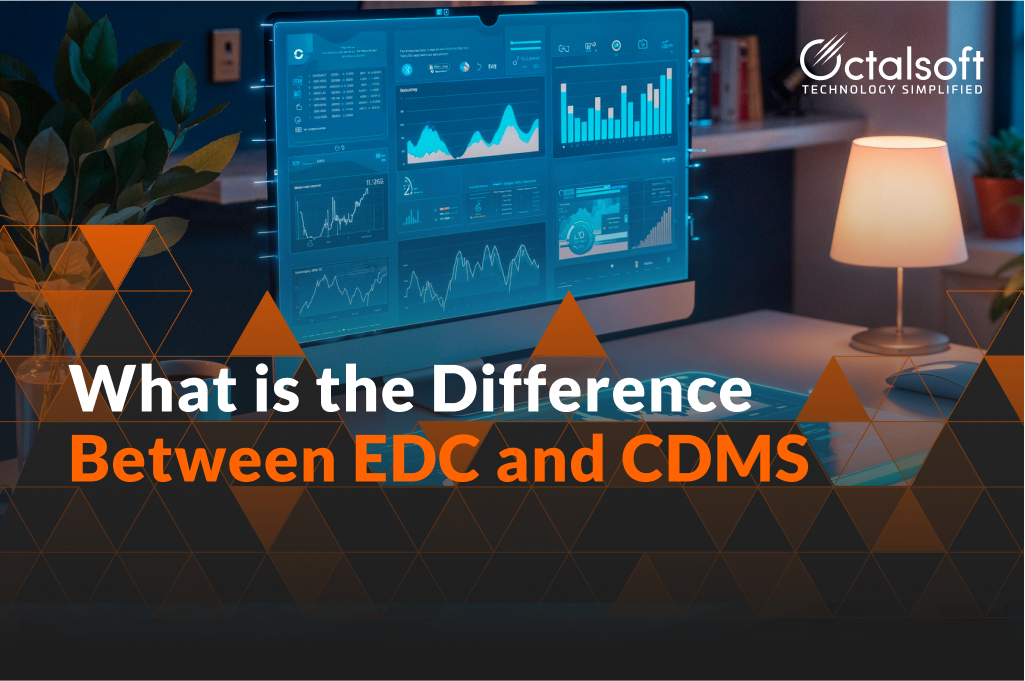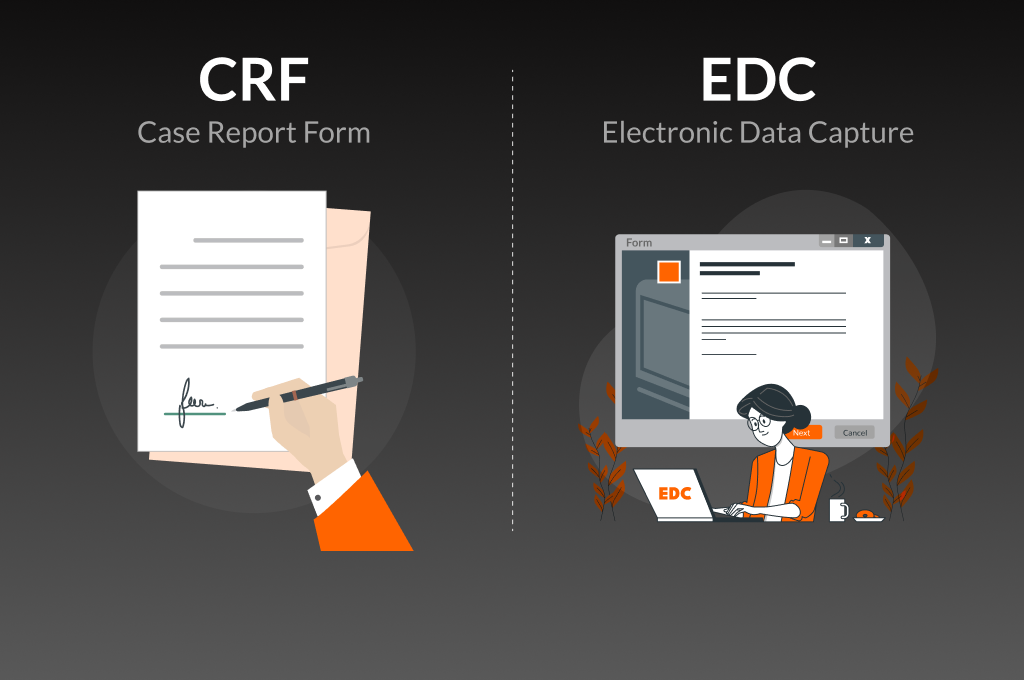Undoubtedly, the foundation of drug discovery is the clinical trial – the only one able to provide sufficient data enabling the introduction of a new drug or new treatment. However, handling the information that arises from these studies has always been an issue as seen with the now archaic traditional paper systems in use during the trials.
Fast forward to the year 2025, EDC or Electronic data capture systems will have revolutionized clinical data collection and will be the standard for any clinical research study, streamlining all processes involved in clinical trials such as data capturing, analysis, and compliance. Adopting EDC systems goes beyond the normal operational transition. It is one of the essential areas in determining the success of clinical trials.
What is Electronic Data Capture (EDC)?
Based on the definition, EDC is an electronic system that enables the collection and storage of data remotely and managing clinical trial databases. It does not use paper – all hospitals and medical centers involved in the study complete the case report forms with their computers while the trial itself is in progress. This practice leads to enhanced expeditiousness and accuracy of data capturing, in turn enhancing quality of the study results and reliability of findings.
Key Benefits of EDC in Clinical Trials
1. Increased Data Accuracy and Integrity
Accuracy of data in clinical trials is extremely important for several reasons, starting with the fact that small errors can lead to significant consequences in the results of trials and even their approval. EDC systems virtually eliminate human error-the basis for which arises from doing it manually-by having validation checks at the point of entry. This means, for example, that it will flag anything missing or inconsistent in the information entered at the time itself and alert the site staff who will then be able to correct the same over time.
A 2023 report published by the Association of Clinical Research Organizations (ACRO) indicated that EDC systems actually managed to lower data entry errors in trials by as much as 25% compared to paper-based methods. Such improvement in data accuracy increases, thus, the reliability of trial outcomes, lowers the costs of dirty data-cleaning processes, and reduces the risks associated with incorrect results.
2. Real-Time Data Access and Monitoring
Indeed, an important benefit about EDC systems is that access to the data of the trial can be done real-time. Thus, sponsors and CROs have the opportunity to monitor ongoing trials, determine the progress patients make, and catch discrepancies once they occur. This view of real-time access brings the speed and accelerates decisions or responses made in response to any problem that may happen in the conduct of the trial.
According to Tufts Center for the Study of Drug Development 2024, EDC systems reduce data collection and verification by 30%, which helps sponsors respond quickly to safety concerns or adverse events, with the eventual impact on improving patient safety.
3. Improved Regulatory Compliance
With increasing regulatory authority scrutiny over the integrity and transparency of data in clinical trials from across the world-from the FDA to the EMA to MHRA-more than ever, maintaining compliance with international standards has now become far more important. EDC systems deliver a robust structure in terms of regulatory compliance through availability of audit trails, electronic signatures, and validation protocols that assure traceability, accuracy, and security of the data.
A report from Deloitte back in 2024 showed that clinical research conducted through the use of EDC systems had a 35% chance of regulatory compliance with minimal audit findings. This is mainly because the systems keep a clear, auditable record of every entry and all changes made, hence this facilitates transparency and compliance with GCP.
4. Faster Time to Market
Time is one key factor in clinical trials, which is key for companies that want to bring new, more innovative treatments to the market much faster. Traditional, paper-based data collection procedures are going to be time consuming and slow down the whole trial process by the time all the data entry, verification, and analysis are done. EDC systems streamline all these procedures so data could be entered faster with real-time access, and data management is dealt with much more promptly.
A recent Frost & Sullivan (2024) analysis has revealed the possibility of shaving 20% off the typical clinical trial timeline of EDC systems. That's acceleration that can translate into faster-in-the-market therapies, saving millions of dollars in development cost while bringing potentially life-saving treatments to patients sooner.
5. Cost Savings
Although an EDC system does incur some cost, in the form of a one time investment, its long run savings are tremendous. An EDC system saves paper material, storage space, and labour that is used in performing data entry. It also saves the sponsor money that otherwise is wasted on possible errors made and data clean up activities.
As cited in the 2024 report of Veeva Systems, companies who migrated their EDC reported having 15% less operational cost for data management. Another big cost saving is derived when multi-site, global trials involve centralized accessibility of data as well as live monitoring to significantly cut down the human as well as the cost for site visits and monitoring sites by hand.
6. Enhanced Patient Safety and Engagement
Patient safety will always be the primary concern of any clinical trial. Using EDC systems, patient safety is augmented further by monitoring adverse event and safety data in real-time. Investigators and sponsors are notified of possible safety issues more rapidly than in a paper-based system, hence reducing risk to the patients to a greater extent.
It is also possible for EDC systems to encourage more patient engagement by collecting the information integrated from mobile and wearable devices, thus enhancing data collection with no hassle at all. Patients can remotely input their data through which that reduces one's need to constantly visit the clinic and in turn enhances the general experience of the patient.
Trend in EDC Adoption 2024 -2025
As we approach 2025, adoption continues to grow with progress in cloud computing, mobile technology, and AI. These will make EDC systems even more flexible and user-friendly models in order to accommodate a decentralized or hybrid design for clinical trials, requiring data at many sites from a mix of in-person visits and remote monitoring.
Third, EDC systems combine AI and machine learning, which presents advanced possibilities of analytical and pattern-detection capabilities. Thus, AI-based EDC systems will be exploited to detect hidden trends and correlations of the patient data unnoticeable at first glance by human researches and allow making more informed decisions in conducting the trials.
Conclusion
EDC systems are revolutionizing the clinical trial process toward higher accuracy of data, improved regulatory compliance, and faster timelines. By embracing this technology, pharmaceutical companies can enhance the quality and efficiency of their trials and get new treatments faster to the market cost-effectively. It is truly heartening that, as the industry moves forward with decentralized and patient-centric trials, EDC systems will play an increasingly crucial role in shaping the future of clinical research.
Related Articles:
- 5 Reasons Why You Need an EDC System for Your Next Clinical Trial
- What is EDC in Clinical Trials?
- Best EDC System for Clinical Trials
References
Veeva Systems, "2024 EDC Adoption and Cost Savings Report."
Tufts Center for the Study of Drug Development, "2024 EDC and Real-Time Monitoring Report."
Deloitte, "2024 Compliance and EDC Systems: A Comparative Analysis."
Frost & Sullivan, "Impact of EDC Systems on Clinical Trial Timelines," 2024.




